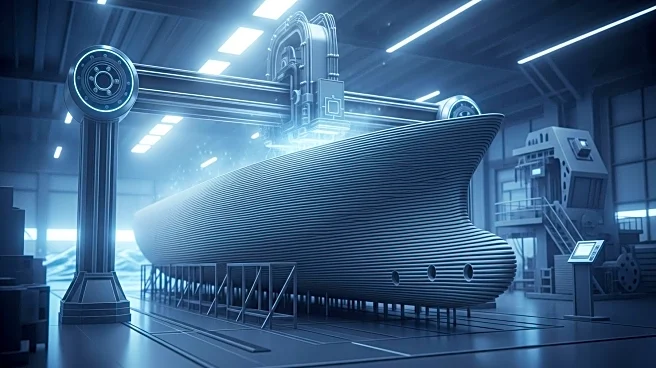What's Happening?
The MariLight 2.0 project, led by Malin Marine Consultants and supported by the National Manufacturing Institute Scotland, has completed its second phase, showcasing the potential of large-scale additive manufacturing in shipbuilding. The project focuses on producing ship components using advanced digital manufacturing techniques, resulting in reduced greenhouse gas emissions, secured supply chains, and economic benefits for the maritime sector. A redesigned metal component, the topology-optimized tapping ring, achieved a 10% reduction in emissions, cut lead times by 90%, and reduced vessel weight by 13%. The project employs Direct Energy Deposition-Arc technology for local, on-demand production, minimizing material waste.
Why It's Important?
The MariLight 2.0 project represents a significant shift towards sustainable manufacturing in the maritime industry, aligning with global efforts to reduce carbon footprints and achieve net-zero emissions. By adopting additive manufacturing, the industry can enhance efficiency, reduce waste, and improve supply chain resilience. This approach not only supports environmental goals but also offers economic advantages by streamlining production processes and reducing dependency on traditional fabrication methods. The project's success could encourage wider adoption of additive manufacturing in shipbuilding, potentially transforming industry standards and practices.
What's Next?
As the MariLight 2.0 project progresses, stakeholders will focus on further testing and validation of the technology, aiming for broader adoption within the shipbuilding sector. The project's outcomes may influence policy decisions and funding allocations towards sustainable manufacturing initiatives. Continued collaboration among industry partners, including BAE Systems and Lloyd's Register, will be crucial in advancing the technology and achieving the UK's net-zero maritime emissions target by 2050.









